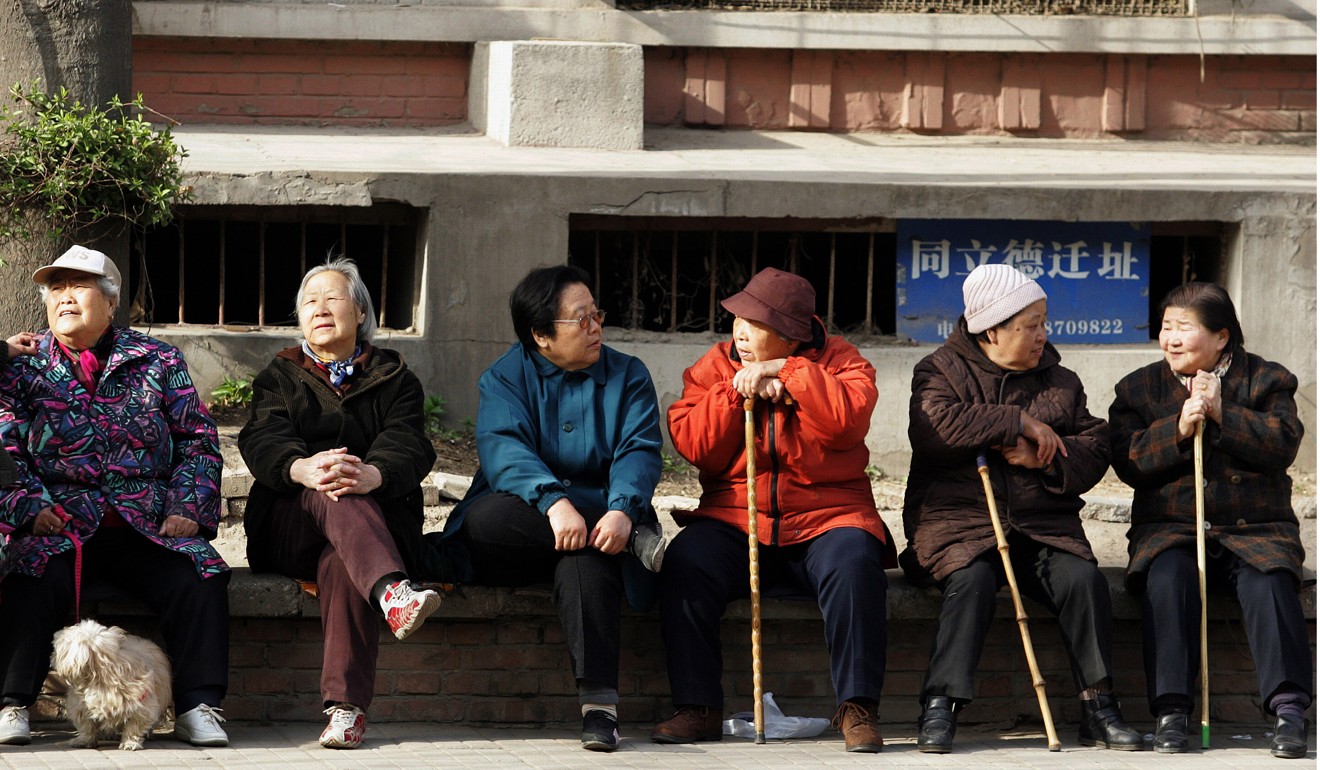
Chinese county to punish ‘unfilial’ people it claims are holding back anti-poverty drive
- Those who allow elderly parents to live in run-down homes, take control of their pensions and other income, or abuse or abandon them will be targeted
- But social media users have accused authorities of shirking their responsibilities to a rapidly ageing society
A county government in northwest China says it will punish “unfilial” people, claiming they are hampering poverty alleviation efforts by letting their elderly parents live in poor conditions.
In a directive, the authorities listed “undutiful behaviour” – such as allowing parents to live in run-down homes – that would be subject to a crackdown in Xunyang county, Shaanxi province.
It is part of a four-month county government campaign, launched on July 5, against “unfilial behaviour”, which authorities said had “degraded social conduct and seriously affected the progress of the county’s battle against poverty”.
President Xi Jinping has set 2020 as the year that no Chinese should be living below the poverty line – officially an annual income of 2,300 yuan (US$330) – with the aim of becoming a “moderately prosperous society”.
According to the county directive, cases where an elderly person has several children but is not being financially supported by any of them, and people who verbally or physically abused their parents, or abandoned them, would also be punished.
But it did not specify the penalties, saying only that people deemed to be “unfilial” would be punished “according to related laws”.
On Monday, a senior official from the county’s political and legal affairs commission told Red Star News that the authorities would punish only those who had broken the law, insisting there would be no abuse of power.
“Family matters are state matters. The country is made up of numerous families, and it is harmonious only when families are harmonious,” Wu Lizhou, deputy head of the commission, was quoted as saying.

The county’s campaign has entered the national debate in recent days, with many people saying the government should do more to support elderly people instead of trying to intervene in family matters and moral issues.
On Weibo, the Chinese version of Twitter, one person said it was the authorities’ duty to look after retirees. “Years ago, when the government asked people to have only one child, they promised to help support retired people. Now that promise has clearly been forgotten,” the person said.
Another Weibo user said there were better areas to focus on.
“Why don’t they crack down on people abandoning children and domestic violence? Is it because that’s too costly? After all, cracking down on unfilial children reduces government costs.”
China’s ageing population problem worsens as birth and marriage rates fall
Zhang Tao, a partner with the Hiways Law Firm in Shanghai, said most of the issues listed in the directive were not directly linked to whether a person had fulfilled obligations to their parents.
He said it was also important to consider whether an elderly person might have made a choice to live alone in an old run-down place, or to give their money to their children.
“I’d call this document more of a suggestion to the public, which probably should have been issued by the Central Guidance Commission on Building Spiritual Civilisation [a government body responsible for spreading socialist values] instead of the police and judicial bodies,” he said.
“This clearly shows the government’s mentality – that it’s under great pressure to beat poverty.”

